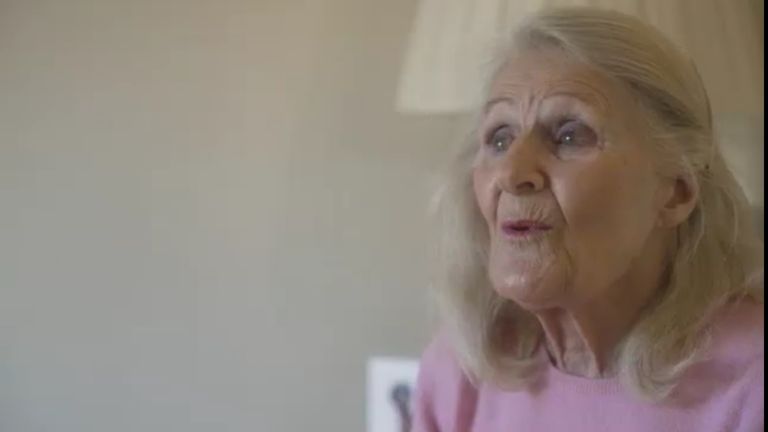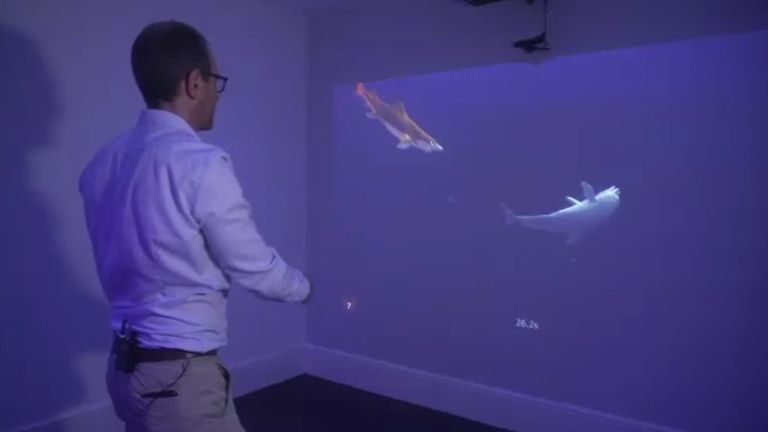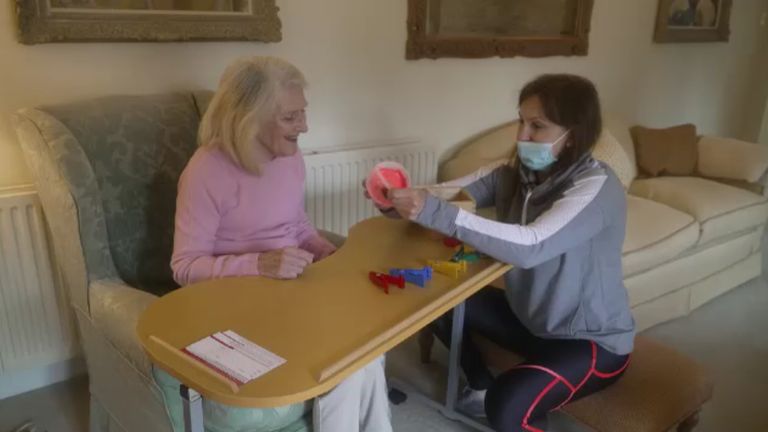An immersive new computer game could give stroke patients an “espresso-like jolt” that stimulates more effective brain repair, according to the neurologist that devised it.
The Pixar-like “neuro-animation” uses motion-sensitive cameras to track the movements made by a patient’s arm to direct a dolphin across a floor-to-ceiling screen to catch fish.
Professor John Krakauer of Johns Hopkins University School of Medicine in the United States said the game accelerates rewiring of the brain around cells that have been damaged by a stroke and helps patients regain control of their nervous systems.
Small-scale trials of MindPod show it is twice as effective as conventional rehabilitation for patients with an impaired arm, a common consequence of a stroke.
The NHS is also about to start a study of the device.
“If you just see yourself trying to open a cupboard or lift up a cup you are going to try to do it the way you used to do it and you are going to get depressed when you can’t,” said Prof Krakauer.
“We are putting you in an environment that can’t be compared to anything you have ever done, and so you are free to explore and free to feel good.
“You want an alternative reality where you don’t think about your limitations.”
Around 100,000 people year in the UK suffer a stroke. Just 10% make a full recovery.
Prof Krakauer said the game encourages the same kind of exploratory “neuro-babbling” that babies use to improve hand-eye coordination.
Sky News was given exclusive access to the first MindPod in the UK, at the Royal Buckinghamshire Hospital, a specialist rehabilitation centre.
The dolphin, called Bandit, invites patients to “be” them and the software’s algorithm then stretches their mind and body in the hope of maximising recovery.
Mary Mount was the first patient to use it. She suffered a stroke last April and used the dolphin game as part of her recovery.
She’s now back home and is continuing her rehabilitation with more conventional therapy involving squeezy balls, clothes pegs and threading string through beads. She described the experience as repetitive and frustrating compared to the computer game.
“If you were a two-year-old you would have screamed and stamped your feet when it didn’t work,” she said.
“You don’t want anything that makes you feel like that when you are frustrated enough already because you can’t do what everybody is expecting you to do.”
Prof Krakauer said regular, intense sessions are key to the computer game’s likely effect inside the brain.
“It allows you to bring online and up-regulate latent neural circuitry that can help restore (ability),” he said.
“Without a very high espresso-like jolt of training of this kind, you won’t bring that kind of circuitry online and then strengthen it.
“It’s far more ambitious than learning a few tricks to survive at home.”
The world-leading National Hospital for Neurology and Neurosurgery in London is about to start a trial of the device alongside its own rehabilitation programme in patients who are several months post-stroke.
The NHS usually stops rehab at 3-6 months, partly because of cost and a shortage of therapists.
Nick Ward, professor of neurorehabilitation at the hospital said patients can continue to improve beyond the cut-off, and the study will confirm whether the game can help deliver good quality therapy.
“If we continue to give treatment, we can help people achieve their maximum potential.
“That’s going to help them get back to their work, it’s going to reduce their need for carers, it’s going to help them achieve the things they want to want to do want to enjoy in their life.”





